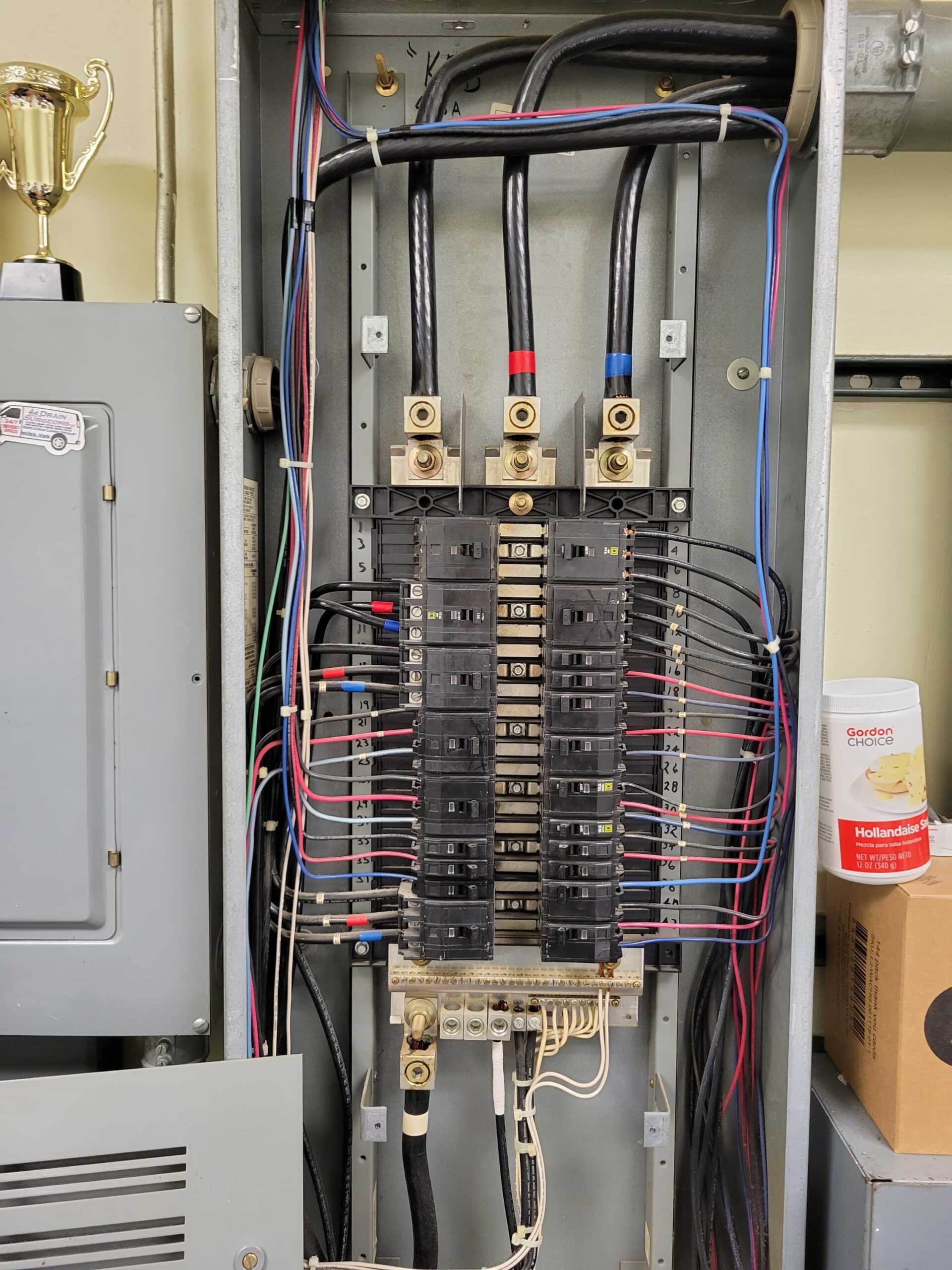Circuit breakers are your home’s unsung heroes. Operating quietly behind the scenes, they shield your home from electrical overloads, power surges, and short circuits. But like any other component in your electrical system, circuit breakers can wear out over time. Recognizing the signs of a failing circuit breaker not only ensures the safety of your home but can also save you from costly repairs or potential electrical disasters.
If you’re a homeowner, electrician, or safety-conscious individual seeking to enhance your electrical system’s reliability, this guide will walk you through everything you need to know about circuit breaker replacement and maintenance.
What is a Circuit Breaker?
At its core, a circuit breaker is a safety device designed to interrupt the flow of current in an electrical circuit when it detects an issue – such as an overload or short circuit. When functioning correctly, it automatically “trips,” cutting off electricity to prevent overheating, fires, and damage to electronics.
Circuit breakers are the backbone of your electrical safety system. However, even the most well-built ones are not immune to aging or wear. Left unchecked, a malfunctioning circuit breaker could compromise the integrity of your home’s electrical system and put your family’s safety at risk.
Signs of a Failing Circuit Breaker
How do you know when it’s time to replace your circuit breaker? While they don’t have an expiration date, several warning signs might indicate it’s not functioning as it should. Here are some of the most common indicators to watch for:
1. Frequent Tripping
If your circuit breaker trips repeatedly without any evident cause, it’s likely struggling to handle the electrical load. Frequent tripping could indicate an issue with the breaker itself or with the wiring it’s connected to.
2. Buzzing or Humming Noises
A properly functioning circuit breaker operates silently. If you hear a buzzing or humming sound from your electrical panel, it may mean the breaker is malfunctioning and failing to shut off power during a fault. This issue requires immediate attention.
3. Burning Smells
A burnt odor near your breaker panel could indicate overheating or wiring damage. If you detect this smell, turn off your electrical supply and consult a professional immediately.
4. Physical Damage
Visible damage, such as scorch marks, rust, or melted areas on the circuit breaker, is a clear sign that replacement is needed. Damaged breakers can pose a significant fire hazard and should be addressed promptly.
5. Appliances Not Functioning Properly
If certain appliances in your home experience frequent power interruptions or fail to power on, it could be due to a faulty circuit breaker that is not delivering consistent electricity.
Recognizing these signs early is critical. Take action the moment you notice one or more of these issues to avoid further damage to your electrical system.
The Importance of Timely Replacement
Ignoring issues with a circuit breaker can lead to significant consequences, some of which may not be immediately noticeable. Malfunctioning breakers can pose a fire risk, damage expensive appliances, and compromise the electrical safety of your property.
Additionally, undetected faults in your breaker panel could increase your electricity bills due to inefficient power usage. Over time, this adds up to unnecessary costs that could have otherwise been avoided with a timely replacement.
Prioritizing circuit breaker maintenance ensures the integrity of your electrical system and, most importantly, offers peace of mind knowing your family and property are safe.
When to Call a Professional
While DIY tests can highlight some issues, diagnosing deeper problems or replacing a circuit breaker requires the expertise of a licensed electrician. Here’s when it’s time to make the call:
- Persistent Tripping: If the breaker continues to trip despite conducting basic tests.
- Burning Smell or Visible Damage: A professional should immediately inspect these signs.
- Old Electrical Panels: Breakers in older homes may not meet modern safety standards and should be evaluated by an expert.
- Installation Needs: Installing or upgrading a circuit breaker requires precise knowledge of electrical systems to ensure compliance with building codes.
Professional electricians not only diagnose the problem but also ensure that your breaker replacement is done safely and up to code.
A Well-Functioning Circuit Breaker is a Non-Negotiable
Your circuit breaker plays a pivotal role in maintaining a safe and efficient electrical system. Neglecting its maintenance can lead to costly repairs, increased risk of fire, and the inability to use modern appliances effectively.
By recognizing the warning signs of a failing circuit breaker, performing basic diagnostic tests, and seeking professional help when necessary, you can ensure your electrical system runs smoothly and safely. Don’t wait for small issues to become significant hazards—take proactive steps to protect your home today.
Conclusion
A reliable circuit breaker isn’t just a convenience; it’s a critical element of your home’s safety system. By understanding its role, recognizing the signs of failure, and acting swiftly when issues arise, you can prevent serious electrical hazards and ensure the longevity of your appliances and electrical infrastructure. Don’t gamble with your safety—prioritize the maintenance and timely replacement of your circuit breaker. When in doubt, always consult a licensed professional to handle repairs or replacements. Protect your home, safeguard your loved ones, and invest in the peace of mind that comes with a properly functioning electrical system.

